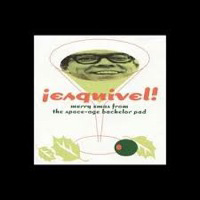 All American Music
All American Music
Compositions in the late 20th Century
By John Rockwell (Da Capo Press)
By Clarendon Lavorich
Yes, the title sounds boring, and yes, the author is a classical music critic (classical being in the tradition of writing for the New York Times about the “art scene” in NYC). And, I suppose if you’re into Nick Kent and Lester Bangs, All American Music is boring. But what Rockwell brings into focus is the evolution and progression of American composition, which has a rebellious spirit and attitude entirely separate from other areas. Further, he’s not afraid to include as “composers” such luminaries as The Art Ensemble of Chicago, Laurie Anderson, Talking Heads, and even Neil Young (yes, I said Neil Young). His goal seems to be to illuminate the minds of his readers about the practices of influential composers, to make them accessible and vital. Because he covers twenty composers in two hundred forty five pages, he obviously doesn’t have time for a compre-hensive study. What he opts for, therefore, is an initial defense of the composers’ right to be called such (and in the case of Young, this takes much of the article), and then offers a brief history of the authors’ work and life. Rockwell is very direct and straightforward about this exposition, which can grow rather tedious if you already know as much information about the artist, and dull if you don’t care. The article on John Cage is interesting because it throws in pages of Cage’s quotes about music (“Here we are. Let us say Yes (sic) to our presence together in Chaos (sic)”) and the piece on Philip Glass shows him to be a thoughtful and insightful composer, not just some minimalistic dork who only plunks down a few notes at a time. His justifications for putting in rock and rollers like Young and the Heads and performance artists like Anderson are at times a bit too insistent. If he’s going to include rock and roll, then better to spend a chapter on that subject alone than try to defend it when the time should be spent talking about the artist. The Talking Heads article tries to give an overview of the downtown NYC music scene ( he writes what’s probably the funniest line in the book when he calls The Ramones “clever conceptualists”) and although it serves as a good beginning, he never really gets down to cases with Byrne and Co. But if you want to impress people at dinner parties, or start a debate about the validity of American composers in the 20th century, All American Music is the one to start with. A good introduction to this “art music” thing people always talk about.



